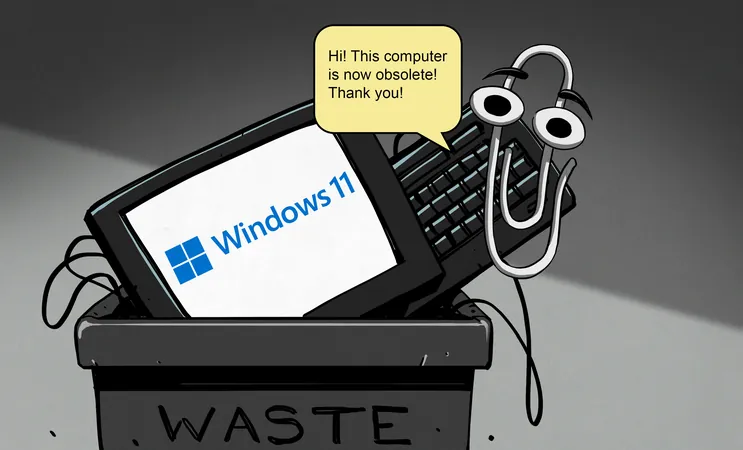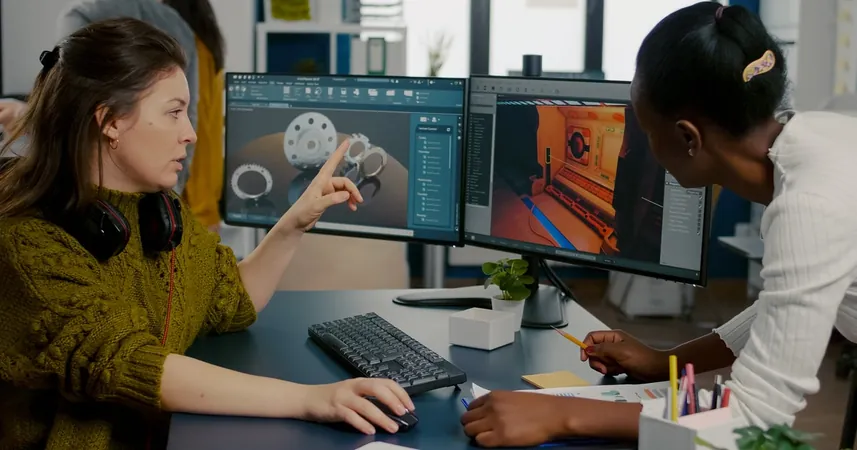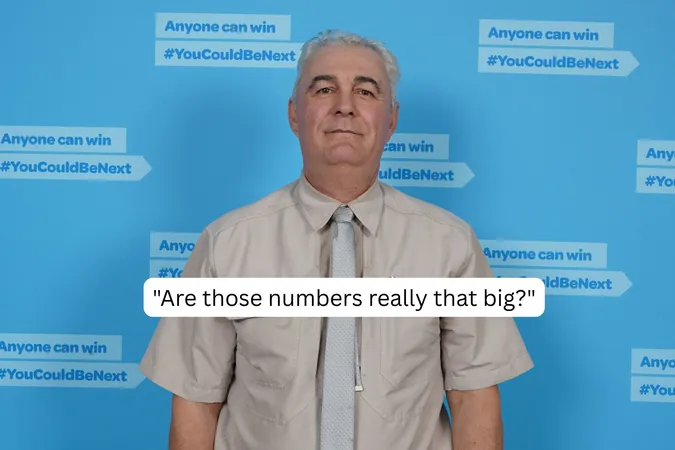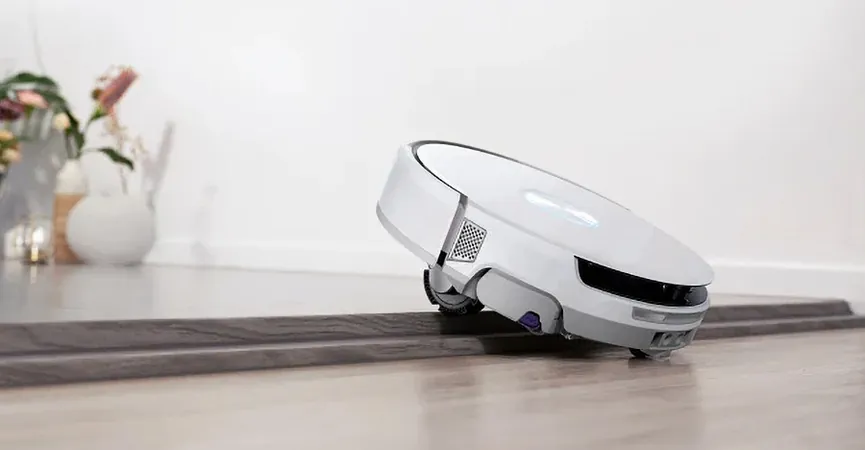
The Dark Side of Windows 11: Will Your Old PC Be Forced into E-Waste?
2025-05-29
Author: Jacob
The Shift in Windows Upgrades
Before Windows 11's arrival, upgrading your operating system was simple. Users would evaluate whether their current version met their needs and, if not, purchase an upgrade disc. Despite gradually rising system requirements, many PCs could still run the latest Windows editions, even those as old as Windows 7 had fallbacks for outdated hardware.
Enter Windows 11: A Game Changer?
With Windows 11, Microsoft introduced rigid new requirements, including the Trusted Platform Module (TPM) – a feature previously relegated to specialized business and government environments. This change, alongside restrictions on CPUs, could potentially render many capable machines useless.
The Illusion of 'Trust' in Trusted Computing
While the term 'Trusted Platform' implies security, the reality is quite different. Trusted Computing means that your system behaves consistently, similar to a locked gaming console. The TPM not only aids in secure boot processes but also manages sensitive data, like biometric information and encryption keys.
Are The Benefits Worth The Risk?
In non-corporate settings, the tangible benefits of having a TPM can be questionable. Cases abound of users losing access to their data due to Bitlocker issues. Windows 11’s complexity could make tech support a nightmare as everyday users grapple with these new intricacies.
Breaking Free from Limitations
Despite Microsoft’s attempts to enforce these restrictions, tech-savvy individuals have discovered ways to bypass them. Installing Windows 11 on unsupported hardware is possible, although it comes with caveats like losing official support for updates.
What Lies Ahead: The Future of Windows?
The future enforcement of TPM and CPU requirements remains uncertain. From the perspective of user control, is it wise to trust that Bitlocker or a future update won't lock you out of your own system? This looming distrust cultivates a hostile relationship between users and their operating systems.
Finding a Solution for Windows Users
With the current trajectory, sticking with Windows 10 may be the best course for many users. Advocating for continued support for older systems could push developers to rethink their strategies. While alternative operating systems like Linux are often suggested, many users prefer not to switch from the familiar Windows environment.
The Bottom Line
For Windows users, it seems that clinging to Windows 10 is a defensive strategy against the harsh realities Microsoft is pushing. Only time will tell if future iterations like Windows 12 will offer a more user-friendly approach, or if they will solidify this trend toward intrusive control.









 Brasil (PT)
Brasil (PT)
 Canada (EN)
Canada (EN)
 Chile (ES)
Chile (ES)
 Česko (CS)
Česko (CS)
 대한민국 (KO)
대한민국 (KO)
 España (ES)
España (ES)
 France (FR)
France (FR)
 Hong Kong (EN)
Hong Kong (EN)
 Italia (IT)
Italia (IT)
 日本 (JA)
日本 (JA)
 Magyarország (HU)
Magyarország (HU)
 Norge (NO)
Norge (NO)
 Polska (PL)
Polska (PL)
 Schweiz (DE)
Schweiz (DE)
 Singapore (EN)
Singapore (EN)
 Sverige (SV)
Sverige (SV)
 Suomi (FI)
Suomi (FI)
 Türkiye (TR)
Türkiye (TR)
 الإمارات العربية المتحدة (AR)
الإمارات العربية المتحدة (AR)